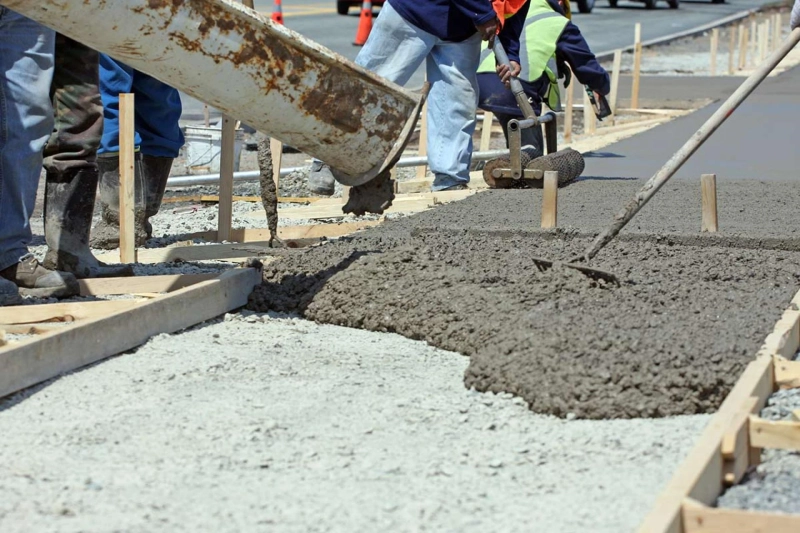Concrete is a material that has many advantages over other types of construction materials. It is durable, easy to work with, and requires very little maintenance.
It is a mixture of cement, sand, aggregates, and water. These ingredients are proportioned and mixed well to create a solid, sturdy mixture.
If you are looking for concrete contractors in Utah, please don't hesitate to follow the link given.
Strength
Concrete is one of the most important materials used in construction. It is durable and can withstand enormous weights, making it ideal for supporting buildings and other structures.
The strength of concrete is determined by the compressive and tensile properties of the mix. These can be increased by adding reinforcing materials and by using a low water-to-cement ratio.
A concrete's tensile strength can also be improved by the addition of metal rods, wires or mesh. This can be especially helpful when a structure has very high tensile stresses, such as in a bridge or roof.
The compressive strength of concrete can vary from 2500 psi (17 MPa) for residential concrete to 4000 psi (28 MPa) and higher in commercial structures. It is measured by breaking cylindrical concrete specimens in a compression testing machine.
Durability
Concrete is a durable material that can last for decades. However, poor concrete practices like insufficient curing or improper mixing can drastically reduce its lifespan.
The durability of concrete depends on its ability to resist weathering, chemical attack, abrasion, and other processes of deterioration. It must retain its original form, quality, and serviceability.
Durability of concrete is affected by a number of factors, including the environment in which it's placed and cured, as well as its design, proportioning, placement, finishing, testing, inspection, and curing.
Durability of concrete is strongly related to the chemistry of cement paste and aggregates, as well as to the water in which they are hydrated and to the reactivity of these materials with soluble ions and other compounds in water. The permeability of concrete is also a major factor in its durability.
Easy to work with
Concrete is a popular building material used in many different construction projects. It is a durable, strong and affordable option for any home or business project.
It can be easy to work with if you take the proper precautions while using it on your construction job. Wearing protective eyewear, gloves and boots helps prevent back strain and skin irritation from contact with concrete.
One of the most important things you can do when working with concrete is to lift only heavy items using your legs and not your back. This will save your back and help you get the job done faster.
It’s also essential to mix your concrete correctly. There are different ways to do this, including machine mixing and hand mixing. Choosing the right technique for your needs is key to getting a quality product every time.
Low maintenance
The Importance of Concrete in Construction
In terms of durability and longevity, concrete is the construction material to beat. It can last decades without needing reconstruction work, making it an ideal choice for homeowners and business owners alike. The material is also a good choice for areas with severe weather conditions, such as hurricanes and tornadoes, as it’s strong enough to withstand the elements.
One of the coolest aspects about concrete is that it’s also one of the most affordable materials available. As a result, it can be used in a wide variety of projects, including landscaping, driveways, and even building a house. This makes it a great option for anyone looking to save money on their next renovation. For example, a new concrete patio can be less expensive than laying down a new deck. Plus, if you want to save on your energy bill, concrete is a natural insulator that can help regulate your home’s temperature.


